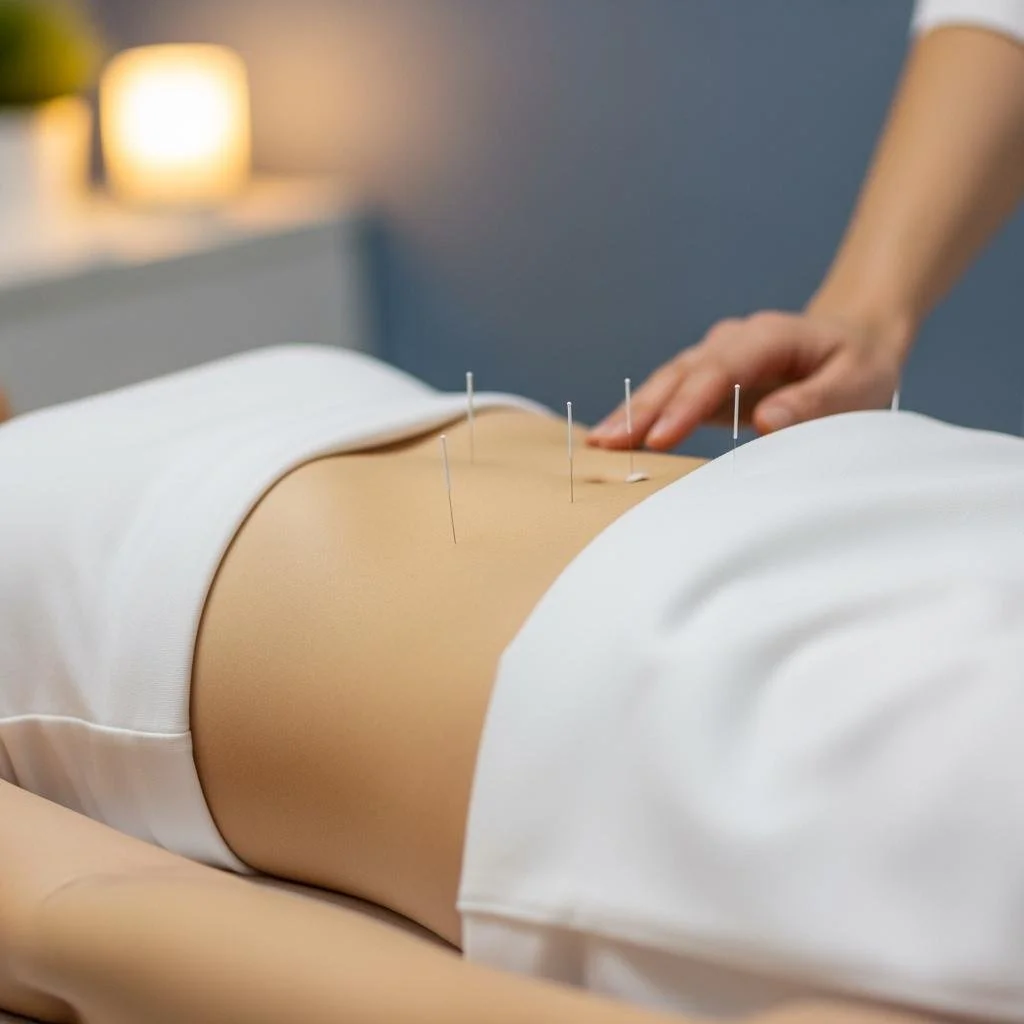The Hidden Benefits Of Acupuncture For Fertility
Infertility affects approximately 48.5 million couples worldwide, defined as the inability to conceive after 12 months of regular, unprotected intercourse. This challenge causes emotional suffering comparable to receiving a cancer diagnosis. We understand this struggle, which is why acupuncture for fertility has become increasingly popular, with at least 1 in 4 couples turning to this ancient practice when trying to conceive.
Studies suggest acupuncture potentially improves fertility in several important ways. Research indicates it may increase live birth rates by 34% and clinical pregnancy rates by 43% compared to control groups. Additionally, acupuncture can balance hormones, increase blood flow to reproductive organs, and significantly reduce stress levels that often accompany fertility challenges. While some research shows promising results, especially for couples undergoing IVF treatments, it's worth noting that other studies have found no conclusive evidence that acupuncture directly treats infertility.
In this comprehensive guide, we'll explore how acupuncture supports reproductive health, outline its key benefits, examine the scientific evidence behind its effectiveness, and explain when and how often you should schedule treatments for optimal results. Whether you're considering natural conception or supplementing medical fertility treatments, this article will help you understand if acupuncture might be the right addition to your fertility journey.
No. 1
How acupuncture supports reproductive health
Acupuncture operates through several key mechanisms that directly influence reproductive health. In traditional Chinese medicine, this ancient practice works by balancing qi (pronounced "chi"), an energy force flowing through pathways called meridians. When fine, sterile needles are inserted at specific acupuncture points, they trigger your body's natural healing response, particularly targeting reproductive organs.
Regulating female reproductive hormones
Research demonstrates that acupuncture effectively regulates female sex hormones crucial for fertility. Studies show it increases estradiol, progesterone, and prolactin levels. This hormonal regulation helps normalize menstrual cycles and create optimal conditions for conception. Furthermore, acupuncture can significantly suppress high estradiol levels induced by fertility medications, better preparing the body for embryo implantation.
The effects on gonadotropins (FSH and LH) are particularly notable:
Acupuncture helps restore normal FSH/LH ratios in women with hormonal imbalances
It can decrease elevated LH levels that often interfere with regular ovulation
Improving blood flow to ovaries and uterus
One of acupuncture's most powerful fertility-enhancing mechanisms involves increasing blood circulation to reproductive organs. Clinical studies confirm that acupuncture reduces the pulsatility index (a measure of blood vessel resistance) in uterine arteries both immediately after treatment and 10-14 days following treatment. Consequently, improved blood flow nourishes the ovaries and uterus, enhancing egg quality and creating a more receptive endometrial lining.
Transcutaneous electrical acupoint stimulation (TEAS) specifically improves ovarian blood supply and responsiveness in women with poor ovarian reserve. This increased circulation helps deliver oxygen and nutrients essential for reproductive function.
Our Ritual
Strengthen your connection with expert-guided relationship therapy at Our Ritual – because every bond deserves care.
Balancing the endocrine system
Acupuncture effectively regulates the hypothalamus-pituitary-ovarian axis, which controls reproductive function. It accomplishes this primarily by affecting β-endorphin levels, which in turn influence gonadotropin-releasing hormone (GnRH) secretion. This cascade effect helps normalize the release of FSH and LH from the pituitary gland, restoring proper ovulation patterns.
Moreover, by stimulating the endocrine system, acupuncture helps regulate the secretion function of both the hypothalamus-pituitary-ovarian axis and hypothalamus-pituitary-adrenal axis. This dual regulation is particularly beneficial for women with diminished ovarian reserve or hormonal imbalances that affect fertility.
No. 2
Key benefits of acupuncture for fertility
Research demonstrates that acupuncture offers substantial fertility benefits beyond its regulatory effects. Clinical studies reveal specific improvements in reproductive outcomes for both women and men seeking to conceive.
Enhancing egg quality and ovarian response
Acupuncture significantly improves ovarian function in women with poor ovarian response. Studies show it corrects serum hormone imbalances and reduces abnormal apoptosis in ovarian granulosa cells. This improvement is particularly beneficial for women over 37 and those undergoing multiple IVF cycles, as acupuncture increased the number of retrieved mature oocytes.
The benefits extend to ovarian health markers. After acupuncture treatment, researchers observed increased ovarian wet weight, improved ovarian index, and higher numbers of oocytes. Importantly, mitochondria (essential for egg quality) showed structural improvements and increased numbers following acupuncture.
Improving sperm count and motility
Men experiencing fertility challenges also benefit from acupuncture. Studies indicate acupuncture increases:
Percentage of sperm with rapid progression (mean difference of 6.35)
Sperm concentration (mean difference of 6.42)
Overall sperm motility and vitality
Transcutaneous electrical acupoint stimulation at specific points (BL23, ST36, CV4) improved sperm motility and the percentage of grade a+b sperm in men with asthenozoospermia. The mechanism appears related to improved testicular blood flow and reduced testicular temperature.
Supporting embryo implantation
Acupuncture enhances embryo implantation by improving endometrial receptivity. Studies found acupuncture increased clinical pregnancy rates (CPR) and biochemical pregnancy rates (BPR) compared to non-acupuncture groups. Likewise, women receiving acupuncture before embryo transfer showed higher implantation rates than control groups.
The implantation benefits stem from acupuncture's ability to decrease uterine artery resistance and enhance endometrial-subendometrial blood flow distribution. Furthermore, acupuncture reduces sympathetic nervous system activity, helping patients feel more relaxed during fertility treatments.
Reducing miscarriage risk
Perhaps most notably, acupuncture has been linked to decreased miscarriage rates. In a study of women undergoing IVF treatment, those receiving acupuncture showed significantly reduced miscarriage rates compared to control groups. Additionally, women with threatened miscarriage who received acupuncture experienced significant reductions in common miscarriage symptoms including cramping, back pain, and bleeding.
Beyond symptom relief, acupuncture treatments before conception and during the first trimester appear to stabilize pregnancies at risk. This protective effect likely relates to acupuncture's ability to modulate stress hormones such as cortisol and prolactin.
No. 3
Scientific evidence and success rates
Clinical studies examining acupuncture's impact on fertility outcomes show mixed but promising findings. Research in this area continues to evolve as scientists explore optimal protocols and applications.
What studies say about acupuncture and IVF
Research on acupuncture and IVF has yielded varied results. In some studies, acupuncture performed on embryo transfer day improved pregnancy rates compared to control groups, while others found no significant differences. Nevertheless, one published analysis revealed women who received 13-15 acupuncture sessions during their IVF cycles were twice as likely to have a baby compared to those who did IVF alone. Indeed, when treatments exceeded three sessions per cycle, acupuncture improved clinical pregnancy rates by 50-60%.
Comparing true vs. sham acupuncture
The comparison between true and sham acupuncture presents an intriguing picture. A systematic review found no statistically significant difference in clinical pregnancy rates between true and sham acupuncture groups. However, one randomized controlled trial showed positive Beta-HCG was detected in 63.9% of the acupuncture group versus 33.3% of the control group. Unexpectedly, similar effects often appear in both true and sham conditions, suggesting psychological factors may play a role.
Acupuncture for fertility success rates
Success rates vary based on several factors. Meta-analyzes indicate acupuncture increases clinical pregnancy rates by 28-32% and live birth rates by 30% compared to no treatment. Timing matters too - studies show a 17% increase in clinical pregnancy rates when acupuncture was provided before embryo transfer. Additionally, women with previously failed cycles experienced a 42% increase in live birth rates with acupuncture. Although encouraging, some large-scale studies, including one with 824 women, found no significant difference in live birth rates between acupuncture (18.3%) and control groups (17.8%).
Timing and frequency of acupuncture treatments
The optimal timing of acupuncture treatments plays a crucial role in maximizing fertility outcomes. Strategic scheduling can substantially improve your chances of conception, regardless of whether you're trying naturally or through assisted reproductive technologies.
No. 4
When to get acupuncture for fertility
For natural conception, the most beneficial times for acupuncture treatments align with key phases of your menstrual cycle:
During the follicular phase (days 5-8 of your cycle)
Around ovulation (day before, day of, or day after)
During implantation (6-10 days after ovulation)
If you're undergoing IVF, research indicates specific timing is vital. Acupuncture during controlled ovarian hyperstimulation significantly increases clinical pregnancy rates (33% improvement). For frozen embryo transfers, acupuncture before the procedure enhances both clinical pregnancy rates (71% improvement) and live birth rates (140% increase).
How often should you do acupuncture for fertility
Generally speaking, once weekly treatments provide optimal results, except during menstruation. Essentially, this translates to 3-4 sessions monthly for most women. In fact, research suggests 9-12 acupuncture sessions prior to IVF significantly improves live birth rates. For specific conditions like thin uterine lining, twice-weekly treatments might be recommended.
Why early treatment matters
Starting acupuncture 3-6 months before conception is ideal. This timing matters primarily because eggs begin developing three months before ovulation. Accordingly, early intervention allows time to address underlying conditions that may interfere with conception, particularly beneficial for PCOS or endometriosis.
Takeaways
Acupuncture offers a promising complementary approach for couples facing fertility challenges. Throughout this article, we've explored how this ancient practice supports reproductive health by regulating hormones, enhancing blood flow to reproductive organs, and balancing the endocrine system. Subsequently, these mechanisms contribute to improved egg quality, better sperm parameters, enhanced embryo implantation, and reduced miscarriage risk.
While scientific evidence remains mixed, numerous studies demonstrate significant benefits, especially when acupuncture sessions exceed three treatments per cycle. Most compelling evidence suggests couples who commit to consistent acupuncture treatments see substantially better outcomes, with some research showing doubled chances of successful conception compared to conventional treatments alone.
Timing and frequency certainly matter for maximizing acupuncture's effectiveness. Weekly treatments provide optimal results for most people, though specific fertility challenges might require more frequent sessions. Additionally, starting acupuncture 3-6 months before attempting conception allows sufficient time to address underlying conditions and prepare your reproductive system.
Undoubtedly, acupuncture represents just one tool among many available fertility options. Therefore, we recommend consulting with both your reproductive specialist and a qualified acupuncturist before beginning treatment. Together, they can create a personalized plan that complements any medical interventions you might be pursuing.
Fertility journeys often feel overwhelming and emotionally taxing. However, acupuncture offers not only physical benefits but also stress reduction and emotional support. After all, this holistic approach addresses the whole person, not just reproductive function. Whether you choose acupuncture as a standalone treatment or as part of a comprehensive fertility plan, this ancient practice might be the missing piece that helps complete your family-building puzzle.
Looking for Wellness resources?
Are you looking to enhance your wellness routine? Explore our wellness partners who offer a wide range of resources to support your journey toward holistic living and well-being.































